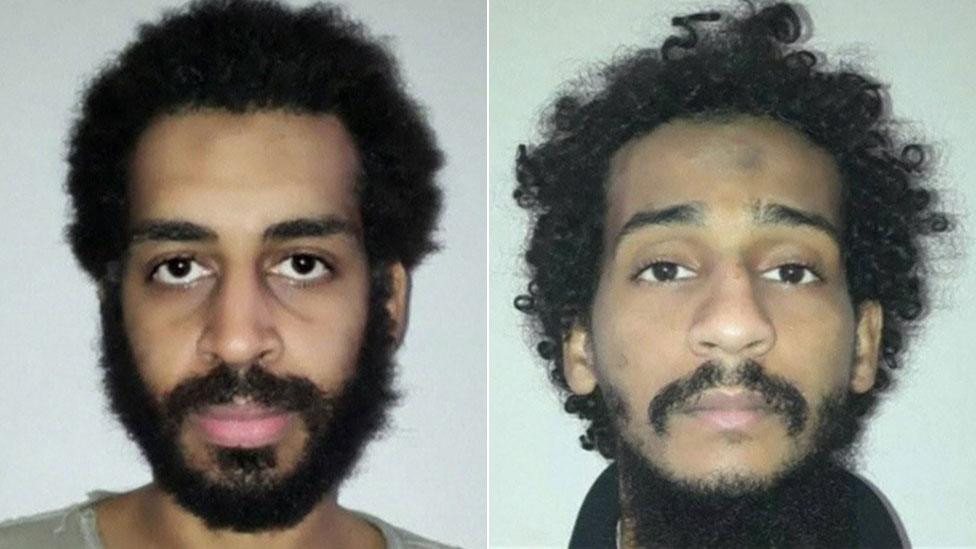Turkey Syria offensive: Will Islamic State re-emerge?
- Published
Inside the camp of IS families in Syria
Yes, quite possibly, in some form, is the short answer. Jihadist groups like Islamic State (IS) and al-Qaeda thrive on chaos and disruption. This incursion threatens to bring both to a region that was already a tinderbox of tension.
But the outcome will partly depend on the depth, duration and intensity of the Turkish incursion into Syria.
The jihadists of IS lost the last remaining square miles of their self-declared caliphate following the battle for Baghuz in Syria in March this year.
But thousands of their fighters are still alive and not all are in prisons. The group has vowed to fight on through what it calls a "war of attrition", hoping to grind down its adversaries by a succession of covertly planned attacks, such as the bombings it claimed in Raqqa this week.
In north-eastern Syria, previously an IS stronghold, their resurgence has been kept in check by the large number of Syrian Democratic Forces (SDF) soldiers, mostly Kurds, backed by US special forces and the firepower at their disposal.
The Kurds have not only been a military presence on the ground and on the border with Turkey but they have also performed the task that almost nobody else wanted to do: guarding the thousands of IS fighters and their dependants in overcrowded prisons and camps under their control.
But with Turkey's powerful army now pushing into areas the Kurds have controlled, Kurdish priorities have changed. Defending themselves has become more important than guarding unprosecuted prisoners whose countries are unwilling to take them back.
Risk of prison break
There are basically two risks here. The first and most immediate is that of a prison break. There are an estimated 12,000 IS members in SDF-run prisons and a further 70,000 IS dependants in camps like Al-Hol.
The IS members include hardcore veterans likely to have carried out or witnessed beheadings, crucifixions and amputations, as well as those with experience of planning military attacks.
Some residents began to flee as smoke rose over the border town of Ras al-Ain
There is a growing fear in Western intelligence communities that in the event of a successful jailbreak then some of these hardened fighters will find their way back to Europe or other home countries and plan a repeat of the sort of attacks witnessed in London, Paris, Barcelona and elsewhere.
Here the West has only itself to blame. Between 2014-2019 the US-led coalition of around 70 nations conducted a hard-fought and successful military campaign to degrade and eventually destroy the IS caliphate that was terrorising an area roughly the size of Belgium.
But it failed to plan sufficiently for the aftermath. There is no internationally accepted mechanism for prosecuting the remnants of the IS caliphate, captured on the battlefield. Instead they are crammed together, in conditions condemned by human rights groups, with no prospect of a trial.
The women's camps are teeming with IS supporters and former members of the Hisbah, the morality enforcers, who are still carrying out strict punishments inside the tented camps, including floggings and burning down the tents of those they disapprove of.
Most of the camps are sited south of the border strip that Turkey intends to occupy. But already there have been Kurdish announcements that they will have to move some of those previously guarding the camps further north to defend against the Turkish advance.

Two of the most wanted IS members, El-Shafee Elsheikh and Alexander Kotay, the so-called "Beatles" who come from London, have been under Kurdish guard in north-east Syria since their capture by SDF forces near the border.
But late on Wednesday it was announced they had been transferred to US military custody pending trial in the US, a sign of just how concerned the West is about the risk of prisoners going free.
Risk of resurgence
The Kurdish fighters of the SDF did much of the hard fighting to defeat IS. US air power, Western special forces and even Iranian-backed Shia Muslim militias all played a part too in dismantling the five-year caliphate that stretched across northern Syria and Iraq.
But if the Kurds are now to become fully occupied in fighting the Turkish army and dodging air strikes then they will no longer be an effective force against IS. The West is unwilling to fill their place.
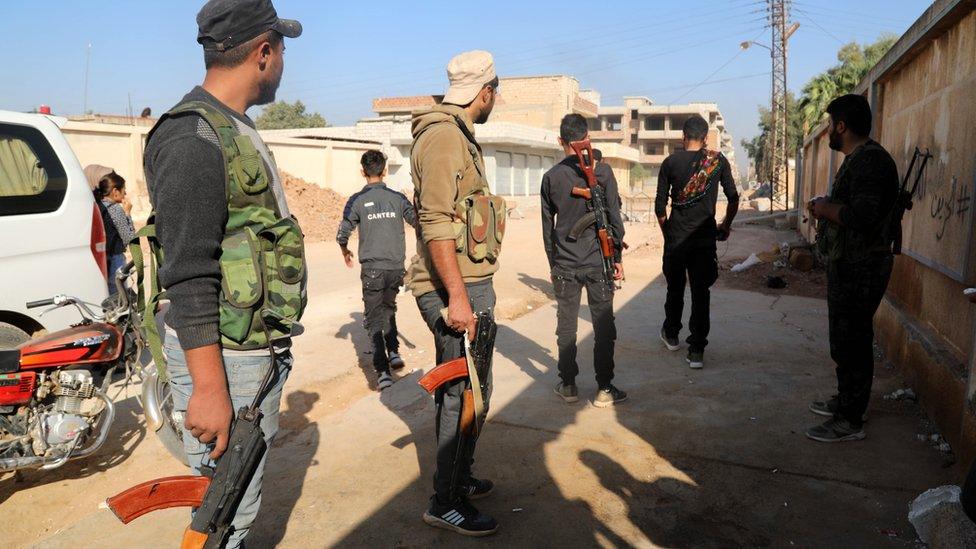
Kurdish-led SDF fighters - seen here preparing to counter the Turkish incursion - did much of the hard fighting to defeat IS
All of which suits IS just fine. Its fugitive leadership has been making occasional announcements of a comeback and already in Iraq, long before this week's Turkish offensive, there have been signs that IS is regrouping and mounting small-scale attacks on Iraqi government posts.
Yet the dire predictions may not all come to fruition. The mixed and confusing messages coming out of the White House may be enough to deter Turkey from pressing too far into Syria.
Its incursion may turn out to be limited and when the dust settles then a new order may eventually re-establish itself in this northern corner of the Middle East.
Ultimately though, the future state of this region looks likely to be highly unstable - unless and until rivalries are set aside and populations get something they have been sorely lacking: good governance.
Jihadist groups thrive on poor or absent governance, whether that be in remote areas of Somalia, Yemen, West Africa or in the tribal heartlands of Iraq and Syria.
There is little sign that is about to improve.
- Published10 October 2019
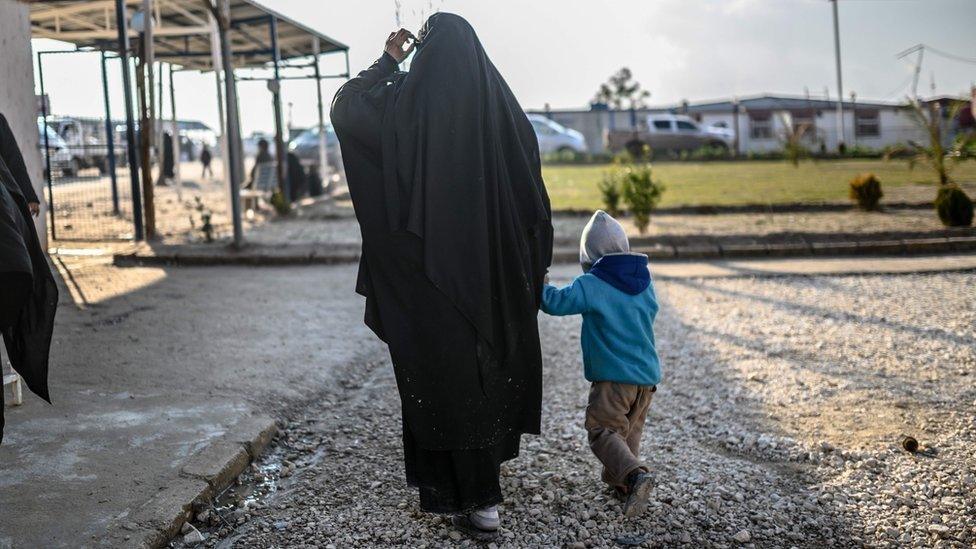
- Published10 October 2019
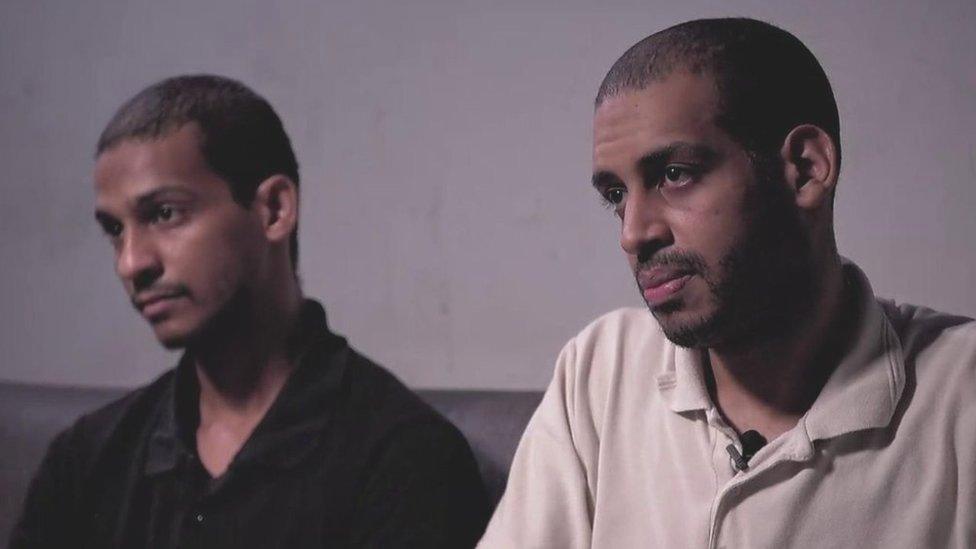
- Published9 October 2019
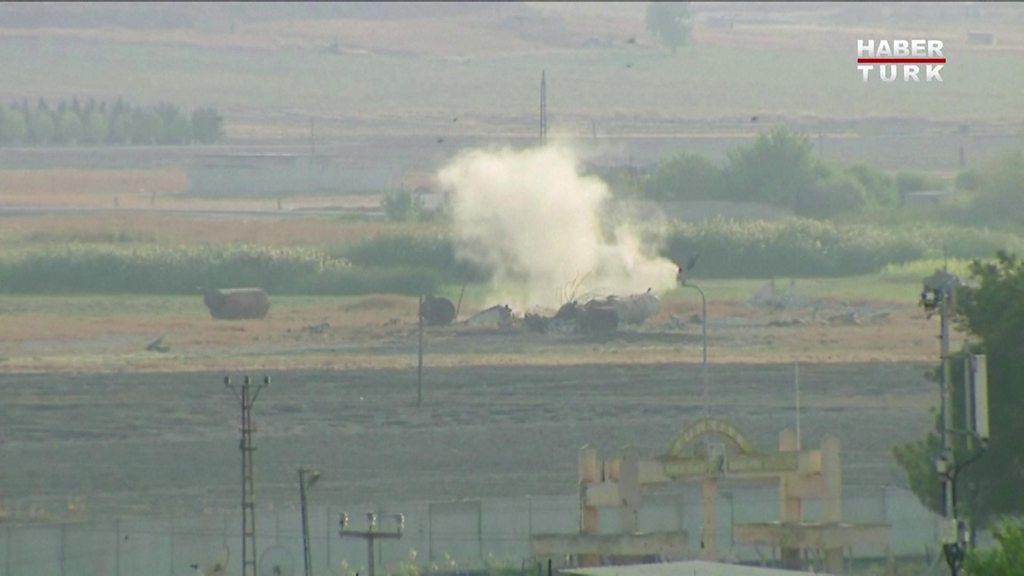
- Published2 February 2018
- Published30 July 2019
